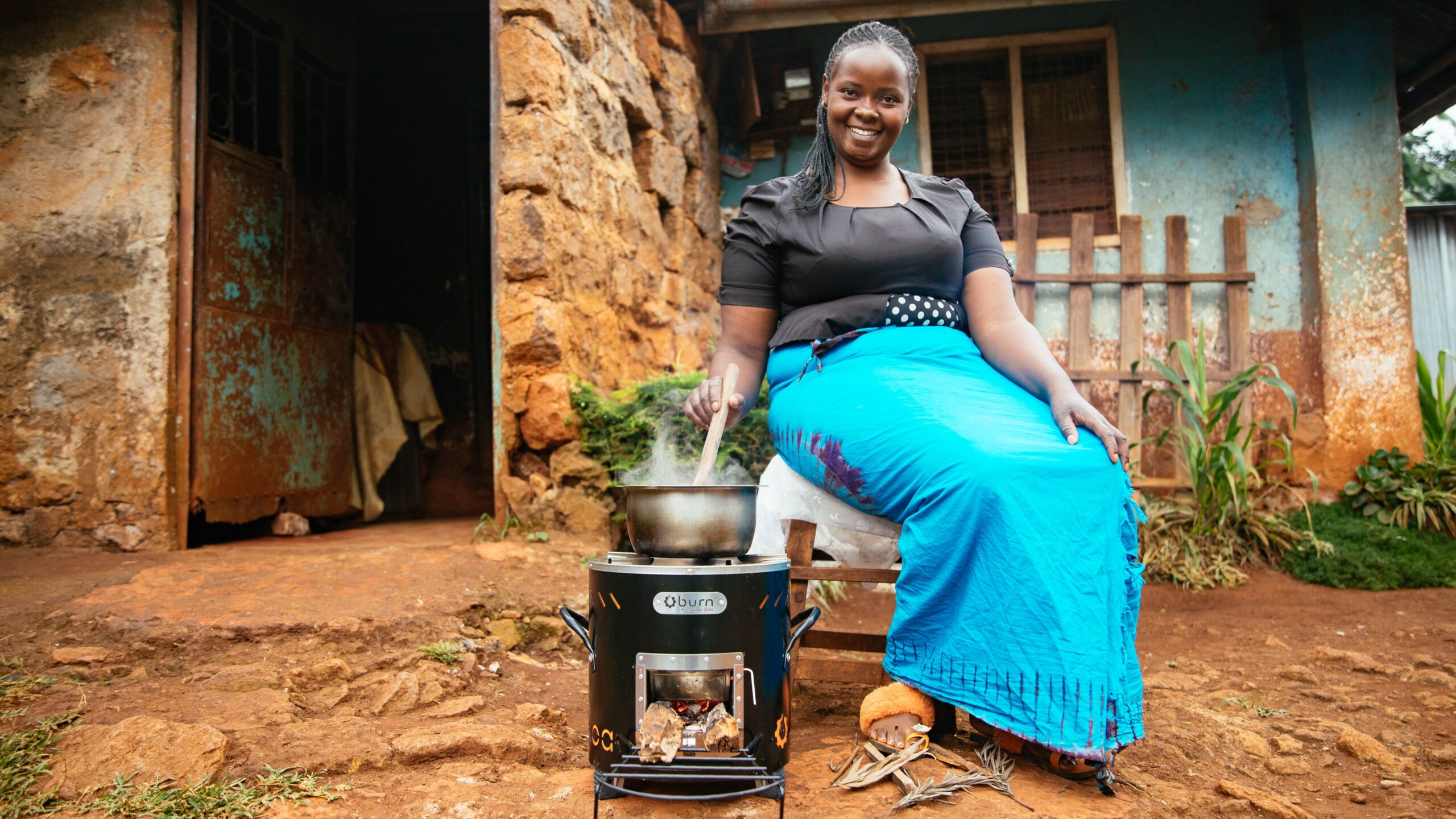Gender Parity Is Nearly Three Centuries Away – Access to Clean Cooking Can Help Change That
Every year, International Women’s Day (IWD) is a poignant reminder of the ongoing struggle for gender equality worldwide. Despite significant progress, systemic barriers still impede women’s empowerment, delaying the achievement of true gender parity by an estimated 300 years.
This year, IWD’s theme of “inspire inclusion” prompts us to reflect not only on the progress made but also on the challenges that persist, particularly for the millions of women and girls who are unable to practice the fundamental right of accessing clean cooking fuels to cook their food safely.
In many parts of the world, women spend up to 10 hours per week gathering fuelwood, exposing them to dangers along the way or inhibiting their participation in productive activities like school or work. And since women are primarily responsible for cooking meals, they are frequently exposed to indoor air pollution, putting them at a greater risk of illness and even premature death.
However, there are sustainable solutions that can significantly improve women’s lives: clean and efficient stoves and fuels. By reducing the need for fuelwood and minimizing indoor air pollution, clean cooking promotes environmental sustainability and frees women from time and energy poverty. Clean cooking technologies also offer pathways for women’s economic empowerment, providing opportunities for women entrepreneurs and employees to contribute to a thriving global industry for clean cooking.
Recognizing women’s pivotal role in household energy choices, CCA strives to empower them to participate in all aspects of the clean cooking value chain. The Women in Clean Cooking Mentorship Program (WICC) by CCA, in collaboration with Sustainable Energy for All and the Global Women’s Network for the Energy Transition, supports women entrepreneurs, innovators, and leaders in the sector. Through training, mentorship, and networking opportunities, WICC aims to enable women to be aspiring leaders, advocates, and changemakers while fostering sustainable solutions that improve livelihoods and public health outcomes.
The launch of WICC’s third and largest cohort signifies a growing commitment to empowering women in the clean cooking sector. Through tailored workshops and capacity-building initiatives, 90 participants from Africa, Asia, and Haiti are gaining invaluable insights into business development, technology innovation, and market strategies. The mentees are diving into topics such as providing clean cooking solutions for refugees, ensuring food safety, understanding entrepreneurship challenges, and building effective communication strategies. Through expert-led webinars and networking sessions, participants are gaining the knowledge and skills needed to drive positive change in their communities.
“Cooking challenges faced by refugees make it difficult for them to live the healthy lives they deserve,” shared Anitha Umothoniwase, the CEO of EcoGreen Solutions, during a recent WICC webinar. “But EcoGreen, alongside its partners, managed to make cooking simple and cheap for everyone in the refugee camps, changing their lifestyles and also contributing to stopping climate change.”
Dr. Raffaella Bellanca, Senior Energy for Food Advisor at the World Food Programme, also spoke to mentees about challenges in the humanitarian field. “At the World Food Programme, we bring food to people and most of the food we provide needs cooking,” she explained. “That’s why we are concerned with shifting people from open fires to the most appropriate cooking solution for their context to reduce their expenses and impact on the environment and their health.”
Awele Okigbo, Founder and CEO of Credo Advisory, spoke about the importance of effective communication strategies. “Understanding other people’s perspectives is instrumental in effectively communicating with them,” she noted. “When people resist change against an idea or thought, such as transitioning to cleaner cooking solutions, you must understand their perspective and where they’re coming from, and try to figure out how to carry them along.”
In addition to offering knowledge-sharing webinars like these, WICC also helps clean cooking industry professionals form valuable relationships and access a broader range of resources and expertise. By creating critical professional networks and receiving gainful mentorship advice from clean cooking experts through WICC, women changemakers in clean cooking are improving the overall talent pool in the industry and creating more platforms for women’s voices and needs to be heard.
“The mentorship program has enabled me to network with other women in the industry, giving me motivation and learnings to take with me into the next level of my entrepreneurship journey,” said Josephine Obingo, Field Supervisor for Women in Energy Enterprises in Kenya.
As we celebrate International Women’s Day, let us renew our commitment to empowering women through clean cooking. By investing in women’s leadership and promoting inclusive solutions, we can create a more equitable and sustainable future for all.

